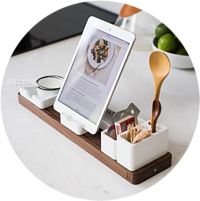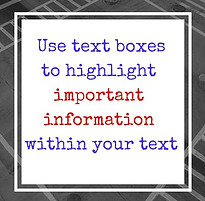So you want to be a blogger? That’s fantastic. Maybe you’ve just started an online business or are looking into ways to do this for the first time. If that’s you, then you are definitely in the right place.
Whatever you want to write about, you need to know how to write your blogs so that they will attract attention and get readers. After all, what’s the use of having some wonderful ideas that you want to share with the world, if you get stuck at the first hurdle: writing?!
Many people who start their online business do not consider themselves to be writers. They may have struggled with English at school or ‘writer’ is just a label that they have never really given themselves. Or it could just be that you imagine writers to be special people with some inherent, special talents that you feel you do not share.
The truth is, writing a blog is really just about communicating. We ALL do it, ALL the time. So writing for a blog is not rocket science and YOU can do it. You may need a little guidance or support as a beginner, but that is what this post is all about – giving you some tips and tricks that will help you get started in writing your first blog.
As well as writing tips and advice, you will also find some practice tasks in the article below. If you are just starting out, or are not that confident with your writing yet, I recommend you try some of the practice tasks to give you some more confidence. After all, writing is like anything else, if you practice it, you will get better at it.
So let’s get going: here are my top 10 tips for getting you from nervous beginner to confident intermediate at least, in a few, easy steps.
1. Start by writing anything – but write about things you love
This is key to writing full stop. Just start! Everything after that is easier.
I recommend that you choose something you love to get you going. It could be your home, your children, your life or your hobby. If you are having to rack your brains about topics to write about, or every time you sit at your computer you feel as if you are in an exam you haven’t revised for, then the chances are you will struggle to write anything. Writing about things you know about will be infinitely easier, more enjoyable and will have a much more successful outcome.

In blogging, it really doesn’t matter what your interests are; there will be someone else out there who will have similar interests to you and who will want to read what you have to say on the subject. It’s human nature. We all like to converse with people who have similar interests.
So it doesn’t matter if you want to talk about knitting, fishing, hang-gliding, drama, websites, cooking, losing weight, self-improvement or wearing odd socks to make you feel unique……you get the idea. There will be other people out there who are a potential audience for you.
Forget about writing a novel – we are not aiming for a Booker Prize! (At least, not yet!) But we are aiming to get you to write something – anything about a subject that YOU love. And once you start, then you will see how easy it is.

So here is your first practice task: Find a space and just start.
- Get a piece of paper, or sit in front of a computer and give yourself 15 minutes. If you have a timer, even better.
- Choose a subject that you know really well – something you are passionate about. It can be anything but choose something you love.
- Write the title at the top of the page.
- Set the timer and then write as much as you can about the subject you have chosen in 15 minutes.
- When the timer goes off, stop writing and see how much you have written.
What you should find is that the writing process is not as difficult as you first thought. Chances are you are annoyed that you ran out of time and feel that you have a lot more to say. This is all good because if means that you do have things you can write about.
An extension to the above task is to give yourself another 15 minutes but answer one or all of the following questions:
- What do I love about this subject?
- What are the problems related to this subject?
- How did I first learn about this?
- What would I tell my children about this subject?
- What would I tell my friends about it?
- What equipment do you need to participate in this subject?
- What is my personal experience?
- What advice would I give to a beginner?
If you do the tasks above, you will soon discover lots of topics that you can write about within your chosen niche.
2. Be conversational – solve a problem
The second thing to realise about writing blogs is that no one wants to read “War and Peace” online! (Sorry Mr Tolstoy!) But it’s true. Most people go online to find out snippets of information that they can get in a few minutes. Think about the last time you wanted some information – where did you look? Chances are you did not reach for the Enclyclopaedia Britannica on your shelf(!) but typed a few keywords into a search engine instead.
People are looking for short, sharp, snappy answers to help them solve a problem. If you are reading this, then you want to know how to write better blogs. Hopefully this will help. Writing in a conversational way takes away the need to write complex, awe-inspiring sentences. It reduces the dependence on things that you half-remember from school about having to use subordinate clauses and not beginning sentences with ‘but’ or ‘and’. That’s not how we speak.
A friend of mine used to be a radio presenter and I asked him one day how he managed to keep things chatty.
He said, “I talk to the microphone as if it was a friend. It means that the people listening think I am talking directly to them, so they feel part of the conversation, even if we have never met.”
This is great advice for writing blogs. Write in a way that directly addresses your audience – people like you who want answers to their questions or solutions to their problems. You are not writing a scientific paper so it’s OK to use common expressions, idioms, thoughts, questions and answers. Doesn’t that seem like a better way to you? Isn’t it what you want to read?
So don’t get caught up about having to write in a prosaic manner – this is not your English language exam paper! Be free, be open and above all, BE YOU! Let your personality shine through your writing – your audience will love you for it.

If you are struggling with writing conversationally, try talking into your computer or recording yourself on your phone and then transcribing what you said. Try the following practice task to give you some confidence and some insight into how you converse.
- Make a list of 5 different people you know and create a question for each of them to ask you about your topic.
- Write their names and their questions on a piece of paper and have it in front of you.
- Using a recording device such as a phone, computer, or tape recorder, go through the questions and answer them in your speaking voice, as if they were sat in front of you.
- At the end, transcribe your answers and see how you actually speak.
- What can you learn about your own style of communication?
Now I’m not suggesting you put in al the ‘umms’ and ‘errs’ that we all use in conversation daily, but just use the flow of your speech as a pattern. You’ll soon start to recognise the things you say, that make you, you.
EXTRA TIP
If you struggle with typing generally or prefer speaking, then there are some great speech recognition tools available on the market today. I used to work in a film company, typing up scripts that were originally hand-written by my boss. I soon learned to type quickly, but my days were freed up when he discovered speech-recognition software. Not only did it free up my time to do more interesting things, but he could knock out a script in a third of the time!
Here are some good ones you might be interested in:
3. List your main points first – create a template
When you start writing, it is always a good idea to have some kind of plan or template that you can work with to help. Think of it like a framework that you can use to put your ideas on and organise them into the right order. There are number of frameworks that you can use to help you create some great content.
You could start by listing your main points and once you have these in place, set yourself the goal of writing say 200 words under each heading, and you will soon be nearing your target word count without really having to think about it. Articles of 1000+ words are really needed by the search engines nowadays, but 1500-2000 words are even better.
Similarly, if you are writing a “top tips” article (similar to this one), you could list your tips and then give yourself, say 200 words under each heading depending on how many ‘tips’ are in your article. You can then add an introduction and conclusion to help round off your post.
Using a template or plan in this way can really help you to make your articles clear and well-structured. They can also help to stop you going off on a tangent. I have listed a few simple templates that you could use below, but you can always research your particular topic or niche and see how other popular sites are structuring their work – we call that, ‘seeking inspiration’ and ‘relevant research!’
PRODUCT OR SERVICE REVIEW

- General overview
- Features and benefits
- Pros
- Cons
- Where to buy
- How much does it cost?
- Any variations or additions?
- Overall rank
TOP TIPS ARTICLE
- Introduction
- Bulleted or numbered list of tips list (E.g. 1-4; 1-8, 1-10 or whatever is appropriate)
- Tip 1
- Tip 2
- Tip 3
- Tip 4 (etc.)
- Conclusion or call to action (say what you want the reader to do – e.g. click on a link/sign up to something)
DISCUSSION OR ARGUMENT ABOUT A TOPIC
- Introduction
- Main point
- Evidence for main point
- Explanation of your evidence
- Link to next point
- 2nd main point
- Evidence for main point
- Explanation
- Link to next point
- 3rd main point
- Evidence for main point
- Explanation
- Link to next point
- Conclusion: short summary of your main points
” HOW TO” ARTICLE OR RECIPE

- Introduction
- Equipment you will need
- Step-by-step instructions (useful to include diagrams here)
- Variations or modifications you can make (e.g. blueberry muffins, toffee muffins, lemon muffins etc)
TRAVELOGUE OR TOURISM POST
- Introduction or overview of the area
- Time zone
- Weather and best time to go
- Short history
- Money
- Vacinations/Health
- How to get there and travel options
- Accommodation
- Places to visit
- Eating and restaurants
- Entertainment
- Things to do with kids
- Things to do for couples
- Best souvenirs
- Precautions or warnings (e.g. insects, staying safe, security)
- Conclusion
Obviously, these are not extensive templates but they hopefully they will give you a good starting framework for many articles that you might want to write.

1. Using one of the above templates, write an article on a topic of your choice. Set yourself a word target and break it down using the template into manageable sections. You do not need to write it al line one sitting. One of the benefits of using a template is that it allows you to write in shorter sections and still maintain the flow and structure of the whole article.
4. Write in short sentences and short paragraphs
This is a simple tip. Write in short sentences so that the reader does not have to read, and reread your sentence to make sense of it. It is better to be concise and to the point than waffle and go off-topic.
Remember too, many readers may be accessing your work through a smart phone or tablet, so they may be put off if faced with pages and pages of text. Use between 2 and 4 sentences per paragraph and use images where possible to add interest and break up the text. Just make sure you own the copyright for the images or use royalty-free ones.
5. Use humour, a light touch or text boxes
This is another simple technique that often helps first-time bloggers. Remember the “War and Peace” example?
It would be better to inject some humour and audience ‘banter’ than to bog your reader down with heavy, technical or scientific explanations.
If your article requires you to relate a lot of technical information (say you are reviewing some technical products for example), then break things up by pulling out the main points and adding them to text boxes. That way, your reader can skim read the article if they want to, and still gain some valuable information.
6. Tell stories and use personal experience if possible
Another great way to engage your reader is to use personal experience or stories. Everyone loves a good story and we relate well to personal comments and other people’s opinions.
When I was writing this article, my 10-year-old daughter came up and asked what I was doing. I explained that I was writing an article to help other people improve their own writing.
“Oh,” she said, looking very knowledgeable. “We do that at school. My friend Hattie helped me today with my own writing” she continued.
“That’s great” I said, clearly impressed. “What did she do to help you with your writing?” I enquired.
“She let me copy hers” she replied!
Obviously this was not the ideal situation I had imagined for my budding J.K. Rowling, but it does illustrate a point – a bit of humour and a personal story is a great way to get your information over. And it is usually more memorable than pages and pages of prose.

1. Think of a story that you have told a friend recently – something that either happened to you or someone you know. Now practice writing it out as if you were retelling it again. Use direct speech if you can (making sure you use the correct punctuation), and think how you could use your story to illustrate a point.
My children are always a great source of inspiration to me, so think how you can add in some personal stories to make your articles that little bit more human.
7. Use a thesaurus to increase your vocabulary
This is a simple tip but it will help you to increase your own vocabulary and add variety to your writing. There are many ways to describe things. I remember my father banning us from using the word ‘nice’ as he said it had no meaning. At the time I didn’t really understand what he meant (I was only 7) but as I grew up, I understood more and more the value of having a wider vocabulary.
There are many online thesauruses that you can use. I like thesaurus.com and freesaurus.com as well. They are both quick and easy to use. I often write an article and when I read it back, if I find I have used the same word a lot, then I go to the thesaurus and find a synonym I can exchange it for.

1. Use a thesaurus to replace some of the words in the passage below to add variety and interest. Think about other ways that you could improve the passage too – there are many!
The weather at this time of year can be very sunny which is great for getting a suntan but you need to be careful that you don’t burn in the sun especially if you are coming from a country that doesn’t get a lot of sun generally. The sun can be very hot and a sunscreen is needed when going out in the heat of the day. A sun hat or suitable headgear that protects your head from the sun is also advisable. It is also advisable to take an insect repellent or wear clothes that cover most of your arms and legs if you go on one of the many nice walks down by the lakes. The views are pretty but no one wants to be eaten alive. Sunglasses are useful to protect your eyes from the sun too.
So I bet that wasn’t too hard, was it? You see, you are becoming a pro already!
8. Vary your sentence starters
A ‘sentence starter’ is just what it says – the words you use to start your sentences. Many people tend to get into a bit of a rut starting sentences and so repeat the same starting words or phrases over and over again. This leads their writing become a bit monotonous and boring to read. There are many different sentence starters and transitional words that you can use to link sentences together in a more creative way.
Start by asking yourself how a sentence relates to the next one. Do you need to compare, contrast, contradict, add information, reaffirm a point, add an example or emphasize an idea? Or is your article written in a logical order, so things need to be numerical or consecutive?
Depending on your answer to the above question, you can find some great new sentence starters to vary your vocabulary.
I’ve listed a few transitional words below that may help when you come to review your own work.
- furthermore, additionally, moreover, in addition, similarly, in fact, likewise, as well as, another thing to consider is
- however, in contrast, nevertheless, on the contrary, conversely, whereas, instead of, notwithstanding, in point of fact
- then, first, second, third, next, finally, in conclusion
- for example, for this reason, because, since, despite, this is why, since, otherwise, to prove the point, research suggests.
This is obviously not an exhaustive list but hopefully it will give you some idea of how you can add interest and keep your audience’s attention.
9. Check your spelling, punctuation and grammar
This is fundamental to all bloggers. At school, we called it SPAG – spelling, punctuation and grammar. No one wants to read articles that are full of grammatical errors or spolling mistooks – sorry, spelling mistakes!
There are so many good online resources you can use now to check SPAG that you should be able to check your work thoroughly before posting it.
There may always be a few typos, even after a good spell check – the computer will not highlight correctly spelled words in a text, even if they are out of context. Like, “the cat felt of the shelf” instead of “the cat fell off the shelf”.
 So the best thing to do is to read your article back to double or triple check. Get other people to proofread it too. And if you publish your blog and then notice some errors, go back and correct them. We are all human, but don’t leave errors in a text! You have been warned!
So the best thing to do is to read your article back to double or triple check. Get other people to proofread it too. And if you publish your blog and then notice some errors, go back and correct them. We are all human, but don’t leave errors in a text! You have been warned!
Some spell checkers may be included in your software program already (such as Word) or you can buy add-ons such a Grammarly if you want to.
Remember too, that sometimes you want to leave a few little idiosyncrasies in your text as it makes things more human and personal to you. So maintain your sense of discernment and style when using spell and grammar checkers.
10. Get some feedback
And finally…..get some feedback on your writing and take it as positive information you can use to improve. Don’t get all upset if you show someone your first blog ‘masterpiece‘, and they are a little underwhelmed by it. Ask for their honest feedback and then act on it – if your sentences are too long and waffle, shorten them. If the feedback is that you blog is unstructured or goes off in all directions, then use a template.
No one really wants you to go back to school here, but getting feedback on your writing as you begin your journey as a blogger, will reap rewards if you take it in the constructive way it is meant. I suggest you ask someone who is likely to understand what you are trying to do here as well. A sympathetic, mentor is always better than someone who thinks you’ve lost the plot – literally!
I hope these few tips have been useful to you.
Please read the ‘related posts’ for more information, and sign up to the site for notification of new posts.
And please do leave your comments in the box below too.
Happy blogging!
Gail

RELATED POSTS
WordPress Tips and Tricks for beginners
Things to do before starting a website for a business
How to start an online business for free using Wealthy Affiliate

Hi Gail,
Thanks for the great info! I chuckled when you mentioned, “War and Peace”. I had to read that in college and it took forever. Back then, writers were paid by the words or amount of pages – such a contrast to blogging! I liked all your suggestions and exercises for the writing process. Thank you!
Nora
Hi Nora. Thanks for your comment. Sorry you had to read “War and Peace” in college – I know it’s a great novel but definitely not for online reading. I had to read ‘Agamemnon’ which again is a great piece of ancient literature, but I found it an excellent way to get to sleep too! Glad you liked the suggestions for exercises. It’s always useful to practice, especially when people start out. I also recommend doing some extensive research as well so you might like a post I wrote which you can link to here.
Great checklist for beginners! Very step by step! Anyone can follow!
Hi Steven. Glad you liked the post and thank you for your comment. It was my goal to create some easy-to-follow tips so I’m pleased that you found them so. Gail
This is a great post Gail. I personally struggle to inject some sort of personal anecdotes or touches like the example you gave with your daughter. I’m working on it though!
Also, I agree with your point about making smaller paragraphs or blocks. Its easier to read and I think when people read stuff online, they initially skim through so smaller blocks of text makes it easier for them to understand what you’re talking about.
Hello Vivek. Thank you for your comment. I understand that everyone is different and we all write in different ways so there is never a ‘one-size-fits-all’ approach to writing anyway. People do like the personal touch though so you can add that in in different ways by using your style, language or humour for example. I agree that short paragraphs are a must. I checked my analytics account recently and over 50% of the traffic was on a mobile so we need to be aware of that as bloggers much more I think. Have a great day and thanks again for reading. Gail
Hi Gail, thanks for these very good tips on blogging. As a blogger, i would definitely benefit from this article and i think it is a good resource. I still need to practice more on using better vocabulary, thanks for noting that. But overall, i like that you give some tasks or practices on your article, practice makes perfect!
Hi Hanna. Many thanks for reading and I’m glad you found it useful, even as an experienced blogger. I agree that practice makes perfect as well as most of us find out when we first start. The more we write, the easier it gets. All the best with your own business. Gail
I agree, it is important for a newcomer to work step by step. I also worked hard to find more information on how to create a blog for affiliate marketing. And your step by step support, fantastic. Spelling and grammar feedback is important too, I would also like more to write such article. anyway, thanks a lot for sharing with us.
Hi Samantha. Thank you for reading and commenting and I’m glad you found the article useful. I agree that a step-by-step approach will help beginners in all things, so writing is no different. All the best with your own sites and blogging. I look forward to hearing of your success. Gail
You know I have had a blog for a few years now, and I thought I was doing great. But some of your ideas are wonderful and I plan to put them to use. Especially starting out different each time, I don’t know that I really thought about that. My posts are all very similarly structured with different information. I think I like the idea of changing it up a bit and making them each unique 🙂
Hi there. Thank you for reading my post and leaving a comment. I’m so glad that you found this article useful even though you are a season blogger. That’s great. I think the issue with blogging is the same with everything – horses for courses, really. Some things will appeal to some people but I subscribe to the old adage that ‘you can’t please all of the people, all of the time. And why would you want to? It would be good to appeal to different audiences at different times, otherwise you will be limiting your potential reach. I hope you do well with your new approach and please come back and let me know how you get on.